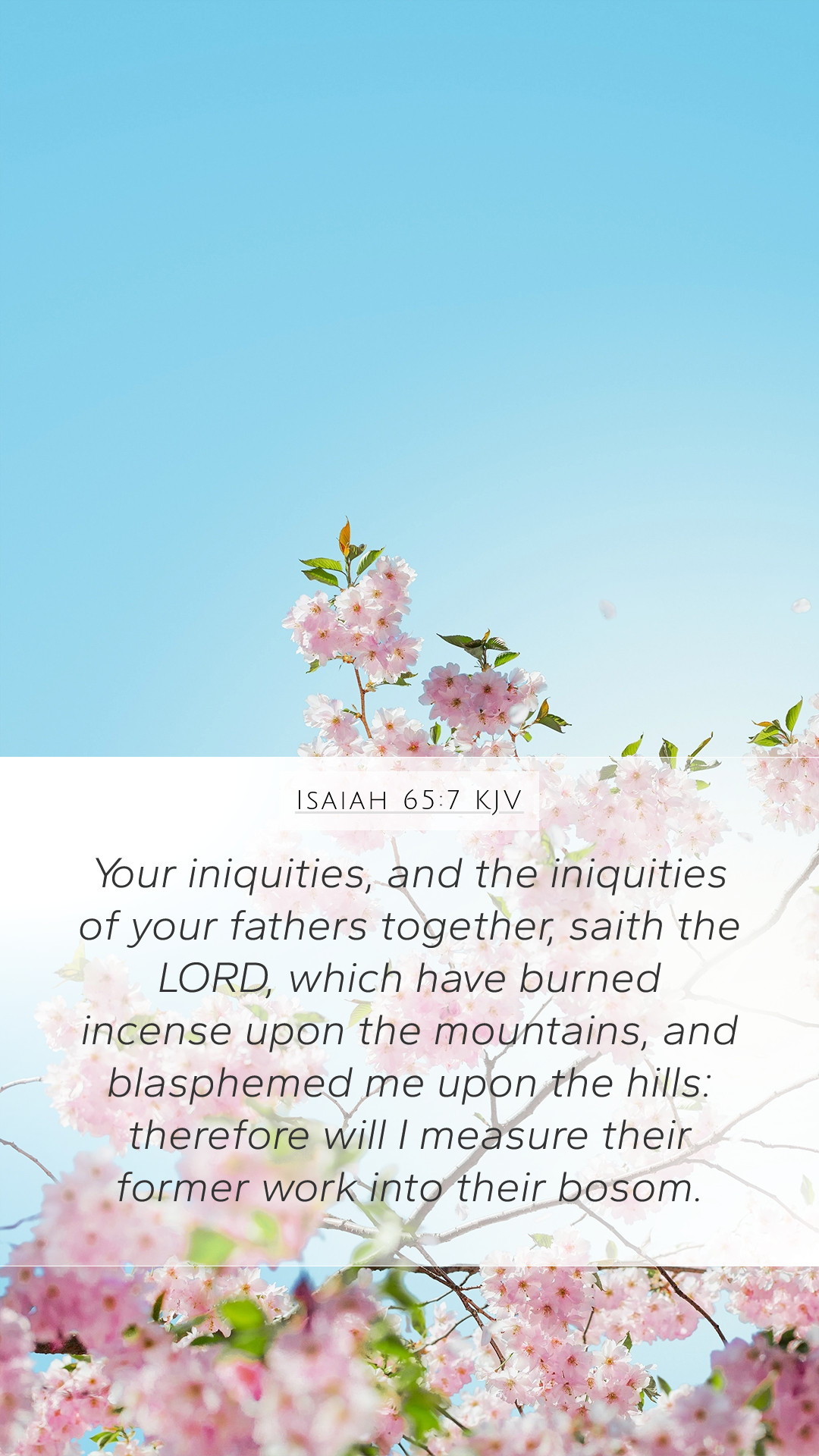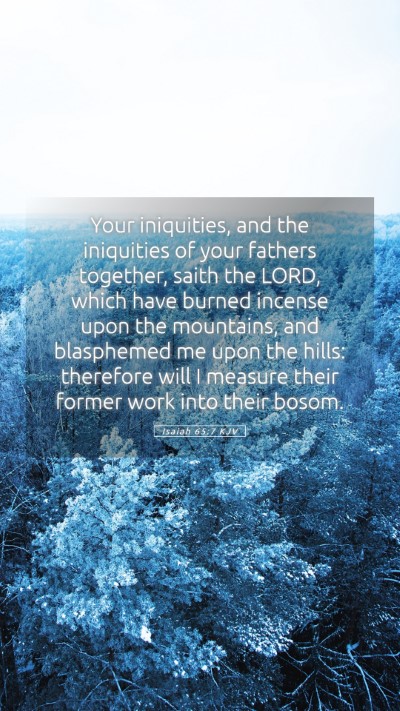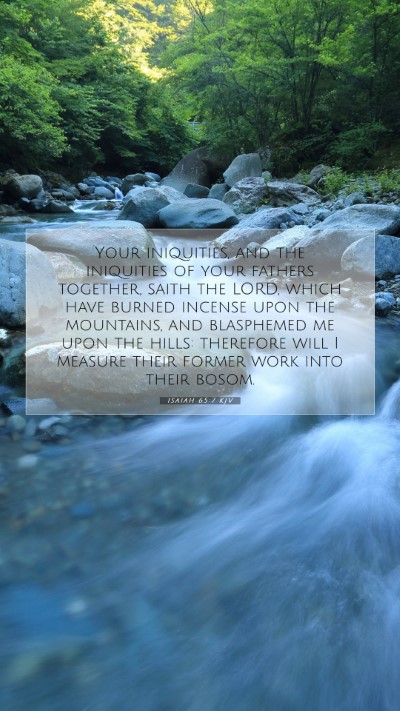Bible Verse Meaning of Isaiah 65:7
Isaiah 65:7 states: “Your iniquities, and the iniquities of your fathers together, saith the Lord, which have burned incense upon the mountains, and blasphemed me upon the hills: therefore will I measure their former work into their bosom.” This verse is an important part of Isaiah's message, dealing with the consequences of sin and the certainty of divine justice.
Overview of Isaiah 65: This chapter captures a prophecies of hope and grace while also warning of judgment. The duality present within this prophetic text emphasizes the need for repentance and the reality of God's judgment on unrepentant hearts.
Understanding Scripture in Isaiah 65:7
- Divine Accountability: The phrase "your iniquities...saith the Lord" indicates that God is holding both the current generation and their ancestors accountable for their actions. It highlights the theme of corporate responsibility for sin.
- Sin's Consequences: The reference to actions such as “burned incense upon the mountains” signifies idolatrous practices. This reflects the deep-rooted sin that permeated society, leading to divine judgment.
- Metaphor of Measurement: The term "measure...into their bosom" can be understood as a metaphor for the way one’s sins will return to them, emphasizing that actions have repercussions and God’s justice is unwavering.
Bible Verse Commentary on Isaiah 65:7
Matthew Henry's Commentary: Henry notes that this verse underscores God's relentless justice. The wickedness of both the people and their ancestors cannot go unnoticed. God’s patience has limits, and the analogy of measuring sin signifies that the time for accountability has arrived.
Albert Barnes' Notes: Barnes emphasizes the collective consequences of the iniquities. He illustrates how these actions directly lead to God's anger and provide a stark warning of impending judgment.
Adam Clarke's Commentary: Clarke elaborates on the nature of idolatry, noting that the act of burning incense was a common practice for pagans. He sees this verse as a powerful indictment against the corrupt worship that had taken place, reinforcing the idea that God will not overlook such transgressions.
Spiritual Insights and Application
- Reflection on Sin: Readers should contemplate their own lives and consider what "mountains" they may be climbing in their spiritual practices—are they focusing on the true worship of God or following idolatrous paths?
- Understanding God's Justice: The verse encourages believers to have a sober view of God’s justice. While God is merciful, He is also just, and understanding this balance can inform one’s spiritual journey.
- Corporate Responsibility: The acknowledgment of ancestors’ sins invites believers to consider how past generations influence current practices. Collective accountability is a crucial element in Scripture.
Related Bible Verses
- Deuteronomy 5:9: "Thou shalt not bow down thyself unto them, nor serve them: for I the Lord thy God am a jealous God, visiting the iniquity of the fathers upon the children..."
- Exodus 20:5: "Thou shalt not make unto thee any graven image...for I the Lord thy God am a jealous God, visiting the iniquity of the fathers upon the children..."
- Lamentations 3:39: "Wherefore doth a living man complain, a man for the punishment of his sins?"
Conclusion
The meaning of Isaiah 65:7 is profound, reminding us of the serious nature of sin and the justice of God. It underscores the importance of seeking true worship and living a life of repentance. As you engage in your Bible study, consider how such verses challenge and refine your understanding of God’s nature and your role in history.
This analysis offers insights for individuals engaged in Bible study groups, online Bible study, or looking for Bible study resources. By reflecting on the crisis of sin addressed in Isaiah, we can deepen our Bible verse understanding and pursue a closer relationship with God.


